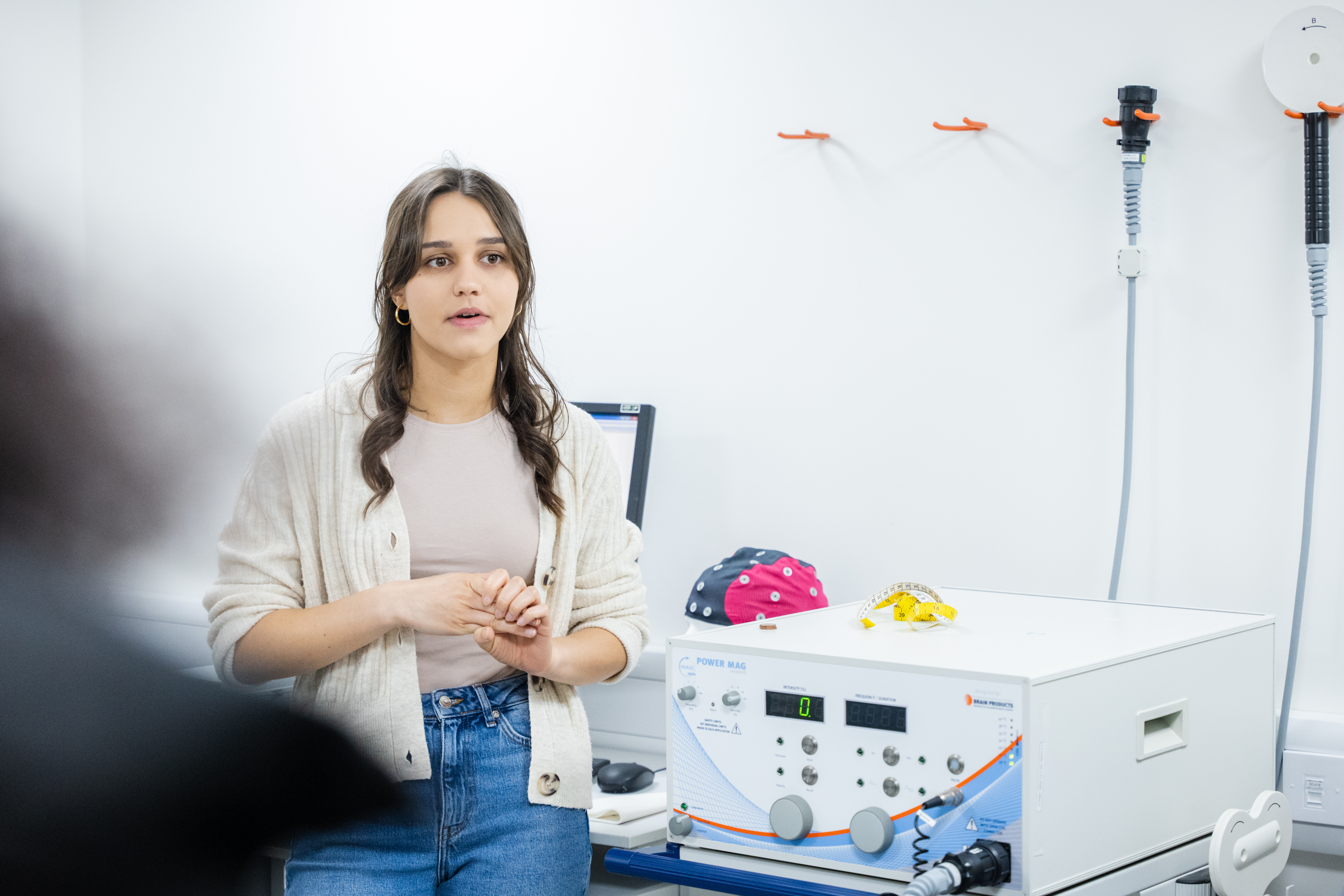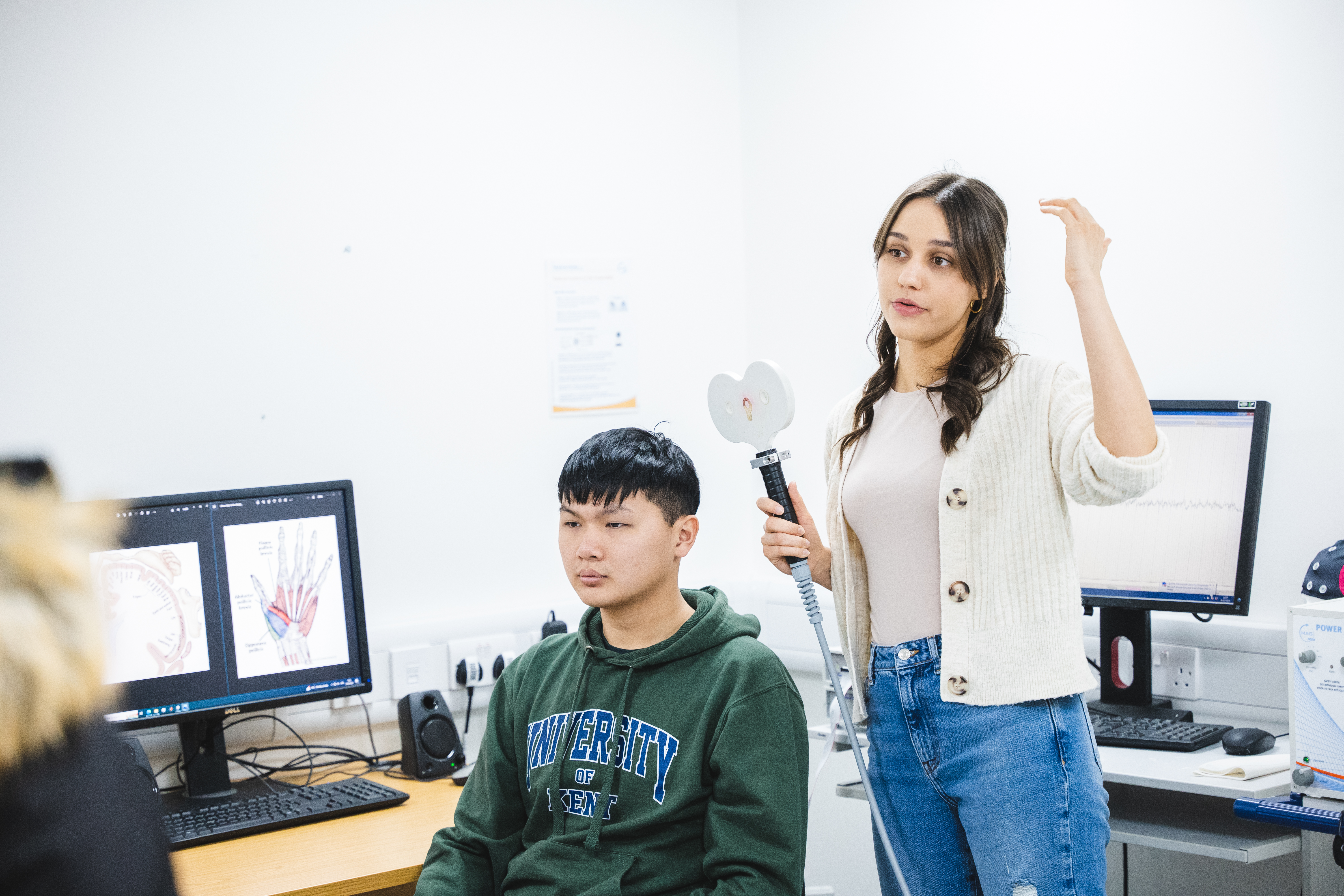My PhD investigates the brain processes responsible for our pain and touch perception. I’m especially interested in how the brain learns about pain and stores this information. Our memory for pain is very important to guide safe actions and avoid future harm but, it can become problematic in cases of chronic pain, pain anxiety etc. I’m investigating how emotions and sensory processes influence our learning and memory for pain and how we might one day disrupt or even erase this.
TMS is a type of non-invasive brain stimulation that uses changing magnetic fields around the scalp to alter the brain’s electrical activity. This means TMS modifies how our neurons function, we can excite or inhibit them. It’s a great method because you can alter functioning in specific regions of the brain and see how this influences different behaviours, cognitions etc. Researchers can then draw a direct link between an area of the brain and its role in perception and behaviour.
“The PhD research can be really challenging but, it doesn’t require perfection. I’ve realised having an interest in your research and a desire to learn lots are the most important things you need.”
I’m using TMS to see if the sensory regions of the brain responsible for pain and touch perception are also responsible for briefly remembering pain. Our participants complete tasks involving painful and non-painful touch to their fingers and they have to very briefly remember information about the touch like how strong it felt. We’re interested in how memory accuracy for the touch changes when we deliver inhibiting TMS to sensory areas of the brain during memory retention. Because TMS can have a very rapid effect from only a few seconds to minutes, we can also build a timeline of when different brain regions are involved in the task
We anticipate that if certain sensory regions of the brain are responsible for briefly remembering pain, participants will be much worse at the task when TMS is delivered to them. This is because the normal functioning of the brain region is impaired meaning it can no longer carry out the processes needed to remember the information.
My supervisor support is a nice balance of help and support whilst also encouraging me to be as independent as I can. We work quite closely together as my studies require lots of specialised training. But my supervisor is great because she gives me the opportunity to take a lead in the research whilst also providing me with invaluable help through regular contact and meetings.
The RPS scheme is really important for studies like ours. Finding participants for lab studies can be difficult so we’re grateful to have the system in place. I took part in both RPS and RES. The RPS was a great way to experience different research techniques and talk directly to researchers about studies. The RES scheme also gave me really valuable research experience such as data collection, brain stimulation studies and designing experimental stimuli. It was nice to be able to work closely with one of the lecturers and their PhD students too.
Louisa Gwynne is studying for a PhD in Psychology


